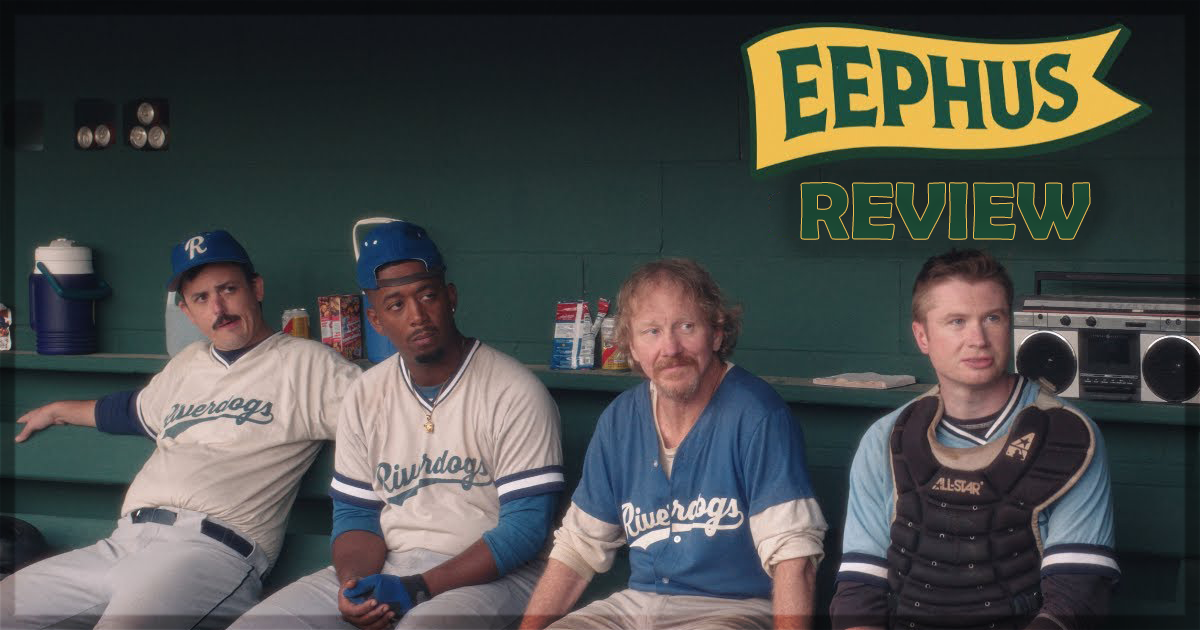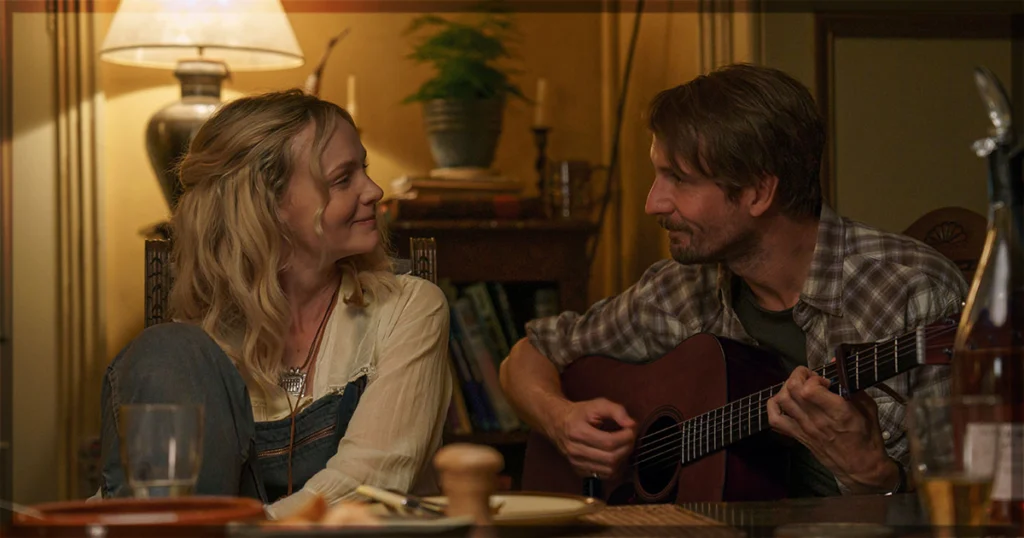When asked to define the word eephus, many may just give up. The word sounds almost made-up if you do not come from the world of baseball. If you are a fan of the great American pastime, however, an eephus is a known quantity. It is the name for a strange, difficult pitch. In a game where pitchers’ speed in throwing is lauded as the pinnacle of achievement, the curving shot of an eephus is almost preternaturally slow. As one of the characters in Carson Lund’s film – titled merely Eephus – says, ‘You can tell when it’s an eephus. It stays in the air forever… an eephus makes him lose track of time. It’s pretty mean that way.’ This encapsulates the strange magic and winning sense of the eephus pitch. For a batter, it is hard to track its path through the air, surprising him and making him swing too early – ultimately causing a strike and, depending on the number of strikes, an out.
This mean pitcher’s masterstroke is an apt metaphor at the heart of Eephus, though the film is far warmer-hearted. Lund sets the action in small-town Massachusetts in the 1990s; as the world hurtles towards a new millennium, the pressing concern from many residents is far closer to home. The town’s ball field’s days are numbered; at the end of the season, it is going to be demolished so that a new school can be built. But there is time for one last game between the Adler’s Paint team and the Riverdogs, two amateur recreational teams for adult men with, ostensibly, lives and jobs outside the field. Their respective leaders, Ed Mortainian (Keith William Richards) and Graham Morris (Stephen Radochia), have no problem rallying the troops for a final game that stretches each inning to its maximum, the game to extra innings, and the day well into the night. (Eephus was shot on location at Soldiers Field in Douglas, Massachusetts, but the field still stands – the threat of demolition was a fictional filmic touch only.)
Underscoring all action is the voice of Branch Moreland (Frederick Wiseman), the local radio host commenting on the small-town goings-on outside of the world of baseball (he is how the audience, and presumably many of the characters, find out about the school expansion and field demolition at the film’s opening). He can comment on the world in a way that explains the game, but he symbolises the world beyond and outside it – in some ways for the better, without its strike outs, stolen bases, and foul balls; but in many ways a lot less magical. The result is something poignant, wry, charming, and quixotically tragic, a tale of little dreams against larger forces and unrelenting disappointments that occasionally yield the sweetest victory.
More than any other sport, baseball may represent the American dream. From the 1898 documentary The Ball Game to fictional feature films such as The Natural, Field of Dreams, and Everybody Wants Some!! (and very obliquely, Twilight), baseball encapsulates the best of what sports give people: a physical challenge, mental strategies, and camaraderie. Of course, more sports and pursuits than just baseball offer this, but baseball is deliberate, almost slow, with plenty of time for the psychological and communal as well as the physical. It is also not exclusively a young man’s (or woman’s) game like many sports are seen as being; the characters of Eephus are all ‘over the hill’, so to speak, and while they are not playing at a professional level they have their pitches, runs, plays, and outs in hand. (Their hearts may not be up to the task to the same degree, as they tell young spectators and players not to get attached, that baseball inevitably leads to disappointment and dashed dreams). This combination of elements makes baseball not only a game matched to Eephus’ tone and pacing but the perfect metaphor for its bittersweet ode to community ties amid changing times.
Lund, who cites Goodbye, Dragon Inn (a film about the closing days of a cinema and the audiences who come through the door) as an influence on the narrative, co-wrote the screenplay alongside Michael Basta and Nate Fisher and had a hand in the film’s meticulously composed visuals as well with his background as a Director of Photography. However, the DOP on Eephus is Greg Tango, whose cinematography captures the golden sunset hours over a baseball field’s mundanity, turning it into a site of beauty and pilgrimage. Through his lens and the thoughtful, languorous script, the final game feels suspended out of time and place, a realm removed from the everyday where nothing matters but the endless innings. In a world where much feels out of control, hopeless, and changing ever-so-slightly too quickly, Eephus transcends its unique setting and topic and feels profoundly relatable. Eephus fills its viewers with love and nostalgia for a time, place, and pastime many may never have experienced through the humour, humanity, and warmth with which it imbues this one last hurrah. A paean to community connection and the small things lost in the necessary ravages of time, it may become one of this year’s most surprising crowd-pleasing hits.
Eephus is now in limited theaters.
Learn more about the film, including how to get tickets, at the official website.
You might also like…
‘The Ballad of Wallis Island’ Review: A Movie That Truly Sings


